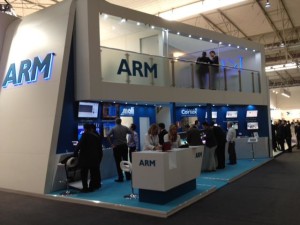 Intel charges around $120-140 for each i5/i7 chipset used in Apple’s MacBook portfolio. Intel generates a gross margin of over 60% on each of these chipsets. This contrasts with ARM based chipset costs of around $15-30, with a mid 40% gross margin. It is possible, therefore, that Apple is keen to reduce the price point of its MacBook portfolio by transitioning away from Intel. It may be that Apple does not believe that Intel’s roadmap aligns with its own requirements, resulting in Apple either having to use an under-powered chipset or overpay for a more capable one. We believe this missalignment in incentives between the companies will continue to push Apple to take more
Intel charges around $120-140 for each i5/i7 chipset used in Apple’s MacBook portfolio. Intel generates a gross margin of over 60% on each of these chipsets. This contrasts with ARM based chipset costs of around $15-30, with a mid 40% gross margin. It is possible, therefore, that Apple is keen to reduce the price point of its MacBook portfolio by transitioning away from Intel. It may be that Apple does not believe that Intel’s roadmap aligns with its own requirements, resulting in Apple either having to use an under-powered chipset or overpay for a more capable one. We believe this missalignment in incentives between the companies will continue to push Apple to take more
control of its own hardware.
Intel does have a line of lower priced chipsets (the Clovertrail range) that is based on the x86 platform and is priced at around $40. We expect many of

